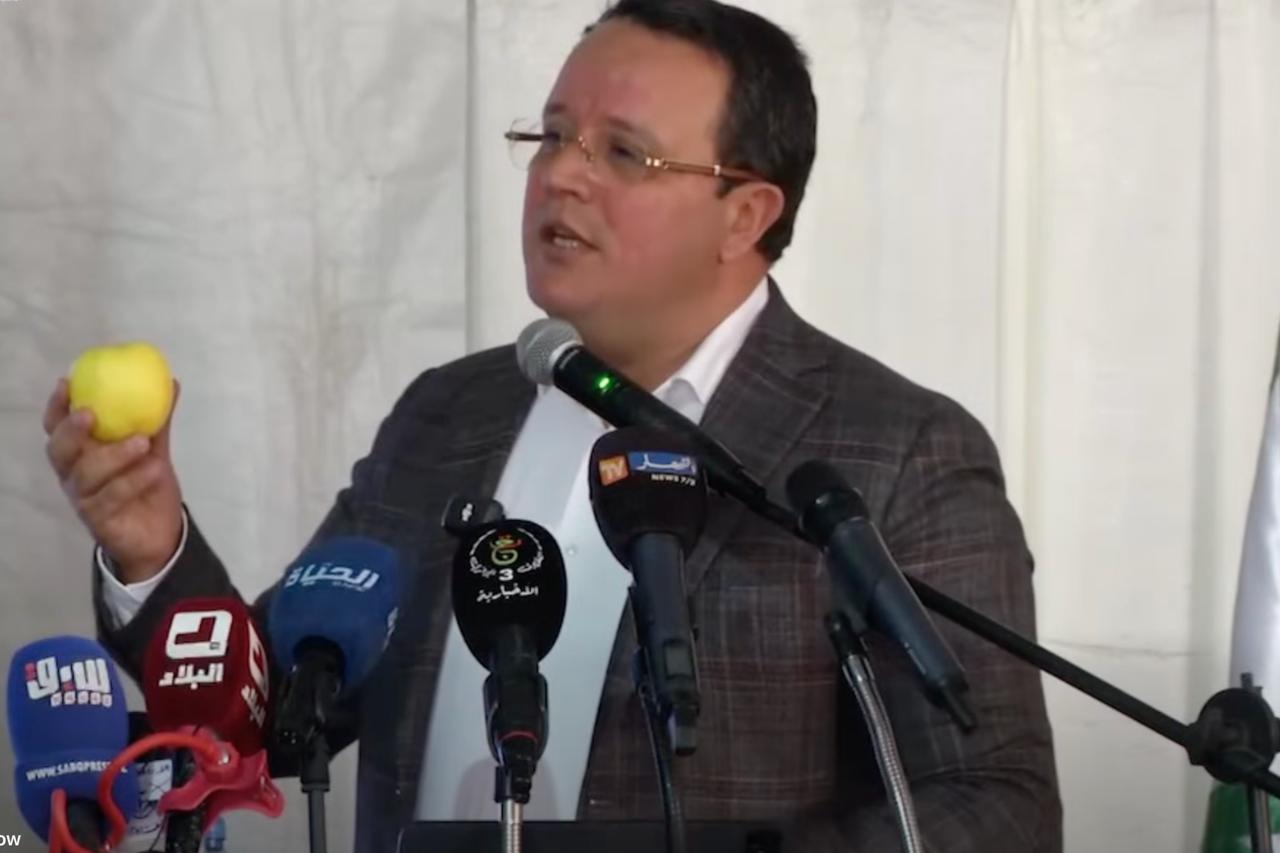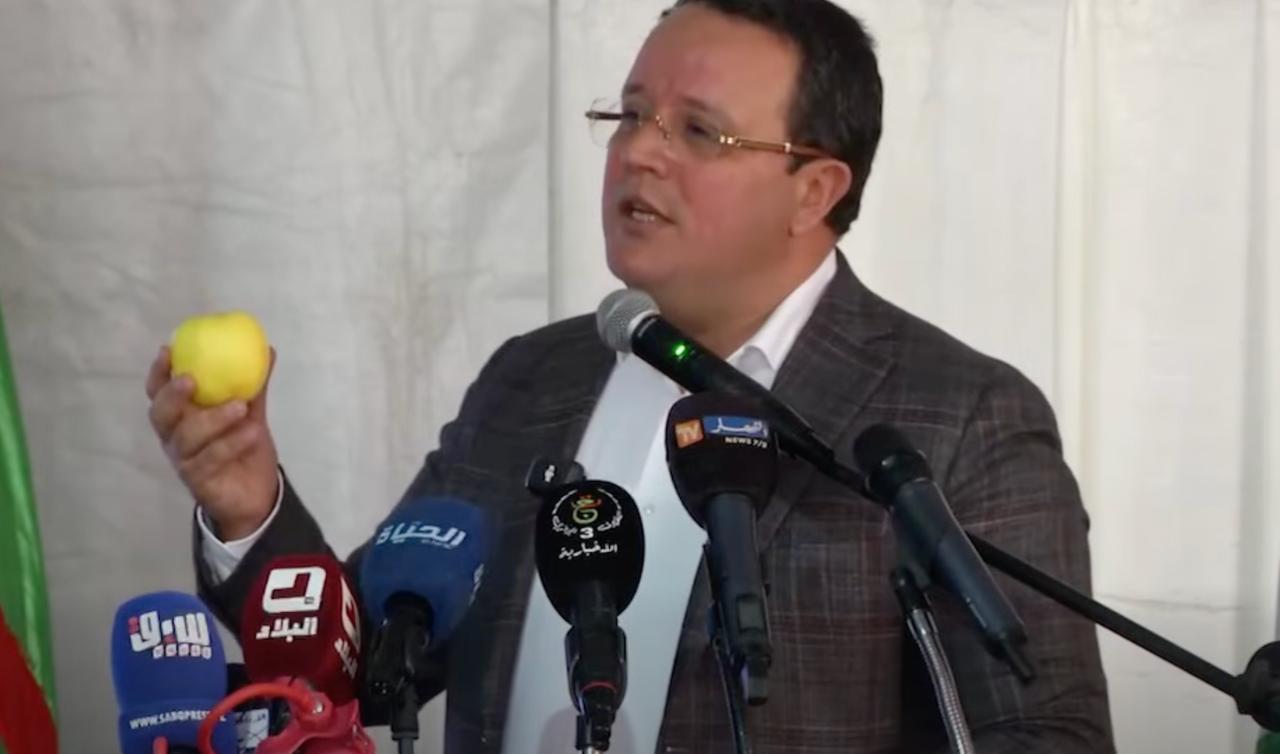
The “Aures Apple” has become the focus of heated debate in Algeria after Mondher Boudin, deputy speaker of Parliament and secretary-general of the National Democratic Rally, linked the fruit to “national dignity.
His remarks triggered a wave of ridicule on social media and renewed criticism of the political class’ rhetoric.
During a public rally in the town of Arris on Monday, in Batna Province, Boudin thanked farmers for their efforts to achieve self-sufficiency in several crops.
Holding up a green apple, he declared it a symbol of national production and of the “restoration of Algerian citizens’ dignity.”
He explained that Algeria once imported apples from France and the Alps, but today Algerians eat apples “beautiful in shape and delicious in taste” grown in the Aures Mountains instead of the Alps.
The remarks drew anger and ridicule, with many criticizing the link between apple production and national dignity, noting that apple prices have already risen beyond the reach of ordinary citizens.
Others condemned what they called attempts to create “symbolic achievements” that do not address real crises, such as onion and staple crop shortages.
The controversy spilled into the Parliament chamber when Zakaria Belkhir, a deputy from the Movement of Society for Peace, responded during the 2026 budget law debate by holding up a green apple before fellow lawmakers.
“The economy is measured by numbers and achievements, not by the taste of an apple,” he said.

Amid the growing controversy, the party sought to justify its secretary-general’s remarks. The party’s political adviser, Hashim Sassi, described the backlash as “a malicious campaign targeting the party through misrepresentation.”
He noted that Boudin’s comments were made in the context of a mountainous region whose residents rely on agriculture, and that apple production there represents “an unprecedented economic and social leap.”
Meanwhile, journalist Ridwan Ben Chenine suggested that the debate reflects a deeper crisis in the relationship between the political class and society, writing on his page:
“The apple incident exposed a deep gap between official rhetoric and citizens’ reality.
In the study of political semantics, this gap marks a moment of collapse in the social contract, when officials speak a language disconnected from everyday social realities.”
He added that “in this case, satire acted as a mirror, reshaping the discourse more truthfully than its original speaker,” likening it to what researcher James C. Scott calls the “weapons of the weak”—informal means by which society holds officials accountable when transparency is lacking.
Thus, the “Aures Apple” has transformed from a local agricultural symbol into a mirror reflecting Algeria’s political discourse crisis, where national symbolism intertwines with popular satire.
It highlights a scene in which politicians speak a language disconnected from everyday reality, underscoring the need for a fundamental reassessment of how citizens are addressed and how political language is used in the country.